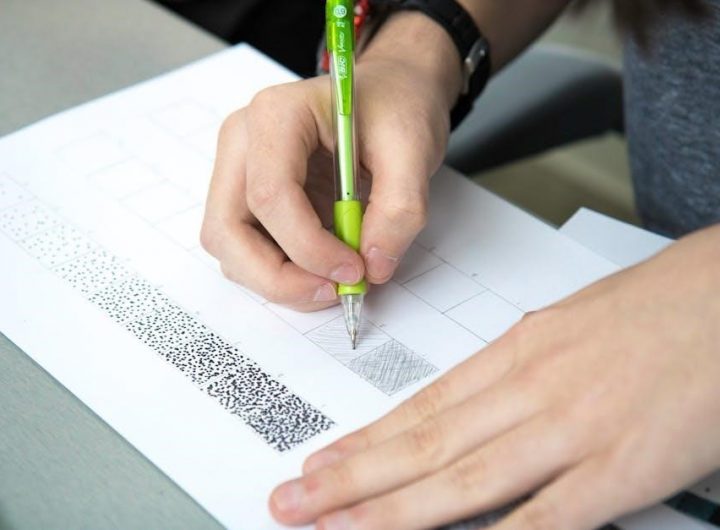
A comprehensive guide to French language learning, these PDFs offer essential vocabulary, grammar rules, and pronunciation tips. Perfect for beginners and advanced learners, they provide organized, portable study aids.
Overview of French Cheat Sheets
French cheat sheets are concise, organized resources designed to aid language learners. They typically cover essential grammar rules, common vocabulary, and pronunciation guides. These PDFs are ideal for quick reference, offering a structured approach to learning. Whether you’re a beginner or advanced learner, they provide practical tools to master French. Topics often include verb conjugations, tenses, false friends, and useful expressions. Printable and portable, they are perfect for studying on the go or reviewing key concepts. Many also include travel-specific phrases, making them invaluable for learners preparing trips to French-speaking countries.
Why Use French Cheat Sheet PDFs?
French Cheat Sheet PDFs are invaluable for learners seeking a structured, portable study tool. They offer concise summaries of grammar, vocabulary, and pronunciation, making complex concepts easy to grasp. These resources are perfect for quick reviews, travel preparation, or focused learning sessions. Printable and accessible, they allow learners to study anywhere, anytime. Whether you’re a beginner or advanced, these PDFs streamline your learning process, ensuring you master essential French skills efficiently and effectively. They are also ideal for reinforcing lessons and retaining information long-term.

French Grammar Essentials
Mastering French grammar is simplified with cheat sheets, covering verb conjugations, tenses, and sentence structure. They provide clear rules and exceptions, aiding learners in building a strong foundation quickly and effectively.
Verb Conjugations in French
French verb conjugations are a cornerstone of language mastery. Cheat sheets simplify learning by categorizing regular and irregular verbs, such as être, avoir, and faire. They provide clear examples of present, imperfect, and future tenses, helping learners understand patterns and exceptions. These resources often include common verbs like parler and finir, offering a quick reference for proper endings. By practicing with these guides, learners can grasp the rules and exceptions, enhancing their ability to form correct sentences in various contexts. Regular review with these tools accelerates mastery of French verb usage.
French Tenses and Moods
French cheat sheets detail the complexities of tenses and moods, covering present, past, and future tenses. They explain indicative, imperative, and subjunctive moods, highlighting conjugations and usage. Resources often include charts for irregular verbs and examples of conditional and imperfect tenses. These guides clarify nuanced rules, making it easier to grasp when to use structures like le passé composé or l’imparfait. By referencing these PDFs, learners can master tense agreements and apply moods correctly in various conversational contexts, enhancing their communication skills effectively.
Pronouns and Sentence Structure
French cheat sheets simplify pronouns and sentence structure, covering personal, possessive, and demonstrative pronouns. They explain subject pronouns like je, tu, il/elle, nous, vous, ils/elles and their placement. Resources also detail object pronouns, such as me, te, se, nous, vous, les, and reflexive pronouns like me-même. The guides clarify sentence formation, including adjective placement and word order rules. By mastering these elements, learners can construct clear, grammatically correct sentences, whether speaking or writing in French.

French Vocabulary Cheat Sheet
French vocabulary cheat sheets provide essential words, phrases, and expressions for everyday conversations. They include common terms, false friends, and organized lists to help learners master French effectively.
Common Words and Phrases
French cheat sheet PDFs include lists of essential words and phrases for everyday situations. Greetings like Bonjour (Hello) and Merci (Thank you) are covered. Common phrases such as Parlez-vous anglais? (Do you speak English?) and Combien ça coûte? (How much does it cost?) are also highlighted. These resources often organize words by category, such as food, travel, and shopping, making them easy to reference. They are designed to help learners communicate effectively in French-speaking environments.
False Friends in French
False friends are words that resemble English but carry different meanings in French. For instance, actuel means “current” rather than “actual.” Similarly, assister refers to attending, not assisting. These PDFs highlight such tricky terms, helping learners avoid misunderstandings. By mastering these false friends, users can improve their French communication and sound more natural. The guides often list these words alphabetically with translations, making them easy to study and reference. This section is crucial for enhancing vocabulary accuracy and fluency.
Useful Expressions for Conversations
Mastering everyday expressions is key to fluent French conversation. These PDFs provide phrases for greetings, politeness, and common interactions. Learn essential questions like Quelle heure est-il? (What time is it?) and Où puis-je trouver…? (Where can I find…?). They also cover apologies, thanks, and basic dialogue structures. These expressions are grouped by context, such as dining, shopping, or travel, making them practical for real-life situations. Regular review helps learners feel confident in everyday interactions, enhancing their conversational skills and cultural adaptability.

French Pronunciation Guide
Master French accents, special characters, and challenging sounds with these PDFs. They simplify tricky pronunciations, like the French “r” and nasal vowels, enhancing your speaking and listening skills effectively.
Accents and Special Characters
French PDF cheat sheets provide detailed explanations of accents and special characters, such as é, è, ê, ï, and ç. These resources highlight how accents change pronunciation and meaning, offering clear examples. Learners can discover the difference between grave (è), acute (é), and circumflex (ê) accents, as well as the cedilla (ç). The guides also cover nasal vowels and silent letters, making complex sounds more approachable. With practice exercises and pronunciation tips, these PDFs help learners master French spelling and intonation effectively.
- Accents: é, è, ê, ï, and ç.
- Nasal vowels and silent letters.
- Practice exercises for pronunciation.
Challenging Sounds for Learners
French cheat sheets address difficult sounds like the guttural “r,” nasal vowels (e.g., “un” vs. “in”), and the “u” sound in “tu.” These sounds often pose challenges for non-native speakers. Guides provide tips to master these pronunciations, such as using minimal pairs (e.g., “pa” vs. “passe”) to practice subtle differences. Many PDFs include audio clips or visual aids to help learners replicate these sounds accurately. Practice exercises and drills are also included to improve intonation and fluency.
- Guttural “r” sound.
- Nasal vowels (e.g., “un,” “in”).
- “U” sound in “tu.”
- Audio clips and visual aids.
- Practice exercises for pronunciation.
French Numbers and Counting
French cheat sheets provide essential number-related phrases, including counting from 0 to 100, days of the week, and months. They also cover basic math operations and ordinal numbers, ensuring clear pronunciation and usage in everyday contexts.
Numbers 0-100 in French
French cheat sheets provide a clear list of numbers from 0 to 100, including their pronunciations and translations. Essential for everyday communication, these resources often include examples of how to use numbers in questions and phrases, such as asking for the time or counting objects. They also cover ordinal numbers and basic math operations, making it easier for learners to understand and apply numerical concepts in practical situations. These guides are designed to be concise and easy to reference, ensuring quick mastery of French numerals.
Days, Months, and Seasons
French cheat sheets include lists of days, months, and seasons, along with their English translations. These resources often provide pronunciation guides and examples of how to use them in sentences. Learners can quickly reference how to ask about dates or describe weather conditions. Many PDFs also offer cultural insights, such as holidays and traditional events associated with specific months. The information is formatted for easy memorization, making it simple to grasp and apply in real-life conversations about time and schedules.

Practical French Phrases for Travel
French cheat sheets provide essential phrases for travelers, covering greetings, directions, shopping, and dining. These PDFs ensure learners can communicate confidently while exploring French-speaking countries.
Greetings and Polite Expressions
Mastering basic greetings and polite expressions is crucial for effective communication. Common phrases include Bonjour (Good day), Salut (Hi), and Au revoir (Goodbye). Polite expressions like Merci (Thank you), De rien (You’re welcome), and Excusez-moi (Excuse me) are essential. Parlez-vous anglais? (Do you speak English?) is useful for travelers. These phrases, found in French cheat sheet PDFs, help create a positive impression and ease interactions during your journey.
Asking Directions and Shopping
When navigating or shopping, essential phrases include Pouvez-vous m’aider? (Can you help me?) and Où est…? (Where is…?). For directions, use À gauche (Left), À droite (Right), and Tourner (Turn). Shopping phrases like Combien ça coûte? (How much does it cost?) and Je voudrais acheter… (I would like to buy…) are indispensable. These expressions, found in French cheat sheet PDFs, ensure smooth interactions while exploring or purchasing items during your travels.

Cultural Tips for French Communication
Understanding French culture enhances communication. Greetings like bonjour and formal titles like monsieur/madame are essential. French media and cinema reflect cultural nuances, aiding language learners in contextual understanding.
French Etiquette and Customs
Mastering French etiquette is key to cultural integration. Greet others with bonjour or bonsoir, and use formal titles like monsieur or madame initially. Polite expressions like s’il vous plaît and merci are essential. In dining, avoid eating on the go and keep hands visible on the table. Respect personal space and punctuality, as these are deeply valued. Understanding these customs enhances social interactions and shows respect for French traditions.
Understanding French Media and Cinema
French cinema is renowned for its artistic and cultural depth. Classic films by directors like Truffaut and Godard showcase the country’s cinematic excellence. Media often reflects French values, blending history, literature, and modern life. Phrases like Les films français sont connus pour leur qualité cinématographique highlight this reputation. Music and literature also play significant roles, with themes often explored in films and media. Understanding these elements provides insight into French identity and enhances appreciation for its cultural output.
 lifebreath digital wall control manual
lifebreath digital wall control manual  rich dad poor dad ebook free download pdf
rich dad poor dad ebook free download pdf  ontario traffic manual book 7
ontario traffic manual book 7  nova scotia dental fee guide 2024
nova scotia dental fee guide 2024  cherche et trouve à imprimer pdf gratuit
cherche et trouve à imprimer pdf gratuit  what stock trade in conjunction with qqq options pdf
what stock trade in conjunction with qqq options pdf  the very hungry caterpillar printables pdf free
the very hungry caterpillar printables pdf free  ged social studies practice test pdf
ged social studies practice test pdf